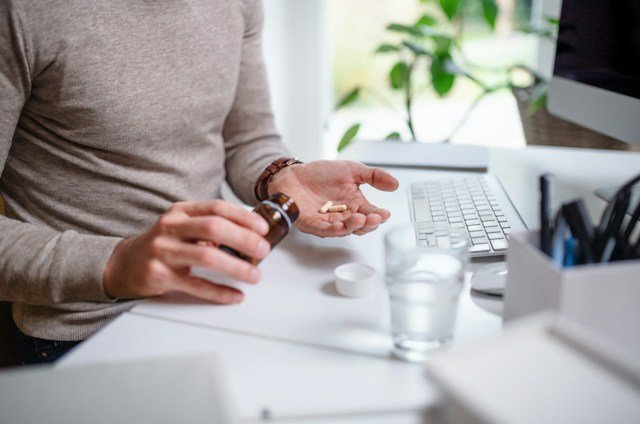
Cancer treatments like chemotherapy can weaken a patient’s immune system by destroying not just cancer cells but also healthy white blood cells.
This makes cancer patients vulnerable to serious infections.
Every year, thousands of patients with weak immune systems contract infections that can become deadly if not treated promptly.
Doctors face a tricky balancing act. They need to give enough chemotherapy to fight the cancer, but not so much that it lowers the patient’s white blood cell count to dangerous levels.
This condition, called neutropenia, can make patients very sick and socially isolated. Right now, the only way to check white blood cell counts is through blood tests.
Enter Leuko, a company developing an at-home device to monitor white blood cell levels without needing blood samples.
This new gadget uses light to scan the skin at the top of a fingernail. Artificial intelligence then analyzes the data to see if white blood cell levels are dangerously low.
Researchers at MIT first came up with this idea in 2015. They created a prototype and did a small study to test it.
Today, Leuko’s devices have successfully detected low white blood cell counts in hundreds of cancer patients, all without drawing blood.
“This device could significantly improve how patients are monitored and cared for at home,” says Ian Butterworth, Leuko co-founder and CTO.
“It also gives patients peace of mind. They can see their family or grandchildren without constantly worrying about their risk of infection.”
Leuko has been working with the Food and Drug Administration (FDA) for the past four years to ensure their device is accurate and easy for patients to use on their own. Later this year, they plan to start a major study needed for FDA approval.
Once the device is widely used, it could also help doctors fine-tune cancer treatments. “Some doctors are excited because they think future versions of our device could help personalize chemotherapy doses,” says Carlos Castro-Gonzalez, Leuko co-founder and CEO.
“If a patient isn’t becoming neutropenic, it could mean they can safely receive a higher dose of chemotherapy. This way, treatments can be tailored to each patient’s needs.”
Leuko’s journey started at MIT in 2013. The company’s co-founders, Ian Butterworth, Carlos Castro-Gonzalez, Aurélien Bourquard, and Alvaro Sanchez-Ferro, were part of the Madrid-MIT M+Vision Consortium.
This program brought together biomedical researchers to tackle big medical challenges. The team received support from MIT’s entrepreneurial programs and eventually raised funding to turn their idea into a product.
The team knew that a noninvasive way to monitor white blood cells would greatly benefit cancer patients. Currently, these patients can only monitor their temperature at home and are told to go to the emergency room if they get a fever.
Leuko’s device looks at the small blood vessels above the fingernail, which are already used by doctors for other health checks. In a 2019 study with 44 patients, the device successfully detected low white blood cell levels with minimal errors.
Since then, Leuko has improved the product and shown that patients can use it at home to send important immune health data to their doctors.
“We work completely noninvasively, so patients can measure their white blood cell levels at home more often,” says Bourquard. “This allows doctors to identify patients at high risk of infection and provide preventive treatments like antibiotics.
Research suggests this could prevent about 50 percent of hospitalizations.”
Leuko’s founders also see potential for their device to help patients with other conditions, such as multiple sclerosis, autoimmune diseases, and organ transplants. They even envision a future where their device could measure other blood parameters like hemoglobin, red blood cells, and platelets.
“This could become a platform technology,” says Castro-Gonzalez. “We aim to expand our device’s capabilities to monitor other important health markers in the blood.”
If you care about cancer, please read studies that low-carb diet could increase overall cancer risk, and new way to increase the longevity of cancer survivors.
For more information about cancer, please see recent studies about how to fight cancer with these anti-cancer superfoods, and results showing daily vitamin D3 supplementation may reduce cancer death risk.



